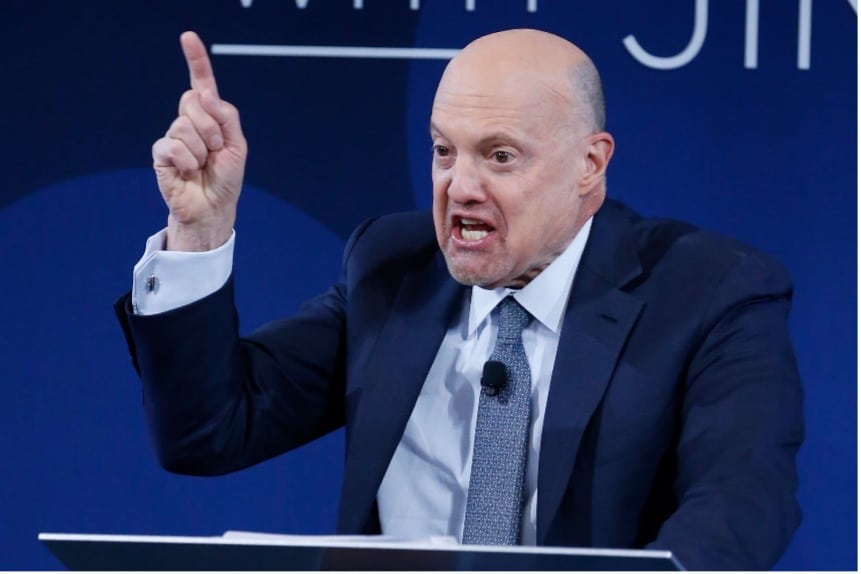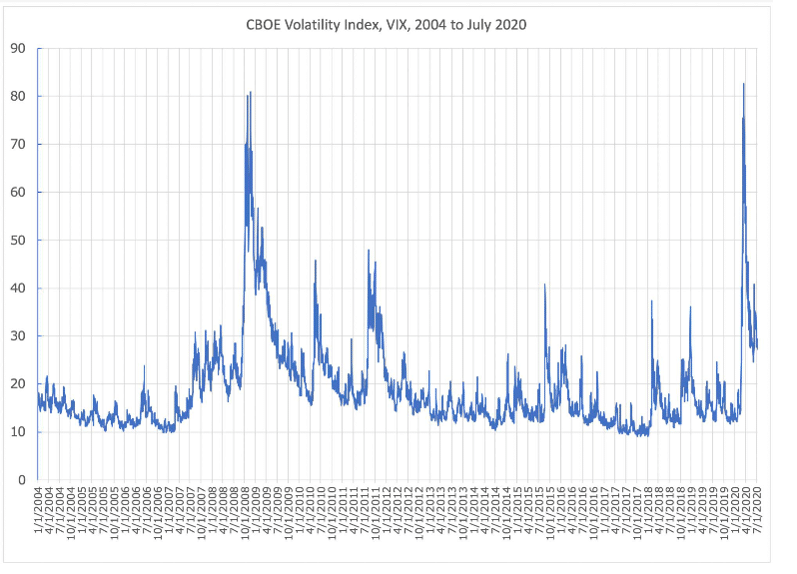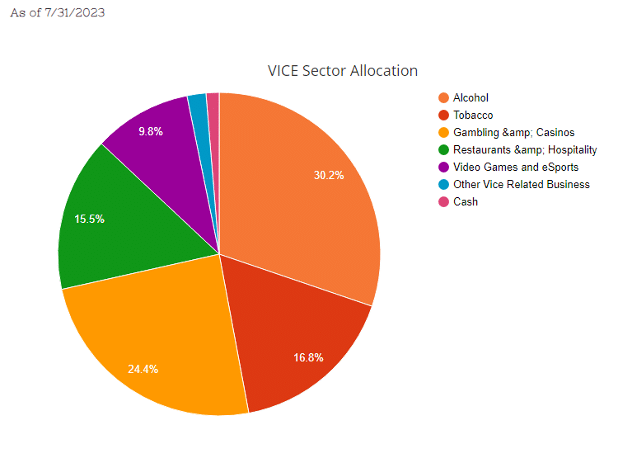The Inverse Cramer, iPath Series B S&P 500 VIX Short-Term Futures, Roundhill MEME ETF, and AdvisorShares Vice ETF are popular choices for investors without fear or understanding of risk.
Long-term readers of my work here at FxExplained and elsewhere will know my basic investing strategy — invest a decent chunk of excess income into an S&P 500 tracker within my SIPP, buy a little gold, invest small regular sums into Junior ISAs for the children, and then engage in highly risky FTSE AIM shares in the hope of outlandishly outsized rewards.
This isn’t advice by any means, but it’s worked for me for some time. Of course, many people pick a singular small cap share and throws all their chips on it like a 21 year old on their first day in Vegas — and most of these people will lose everything, though a lucky few get the suite at the Bellagio.
I prefer to spread my investments over a variety of sectors and geographies. Then it struck me — there must be EFTs that seek to simulate ultra high-risk, high reward strategies but without all the hassle of research.
And here they are:
Insane thematic investing ETFs
1. Inverse Cramer ETF
Jim Cramer — the man who coined the FAANG stocks all the way back in 2013 — may be one of the world’s most famous financial commentators but has now largely moved into the role of entertainer rather than analyst.

In recent months, Cramer’s picks have a habit of backfiring spectacularly within hours of his opinion being uttered — with his ‘Tweets’ et al being widely shared to mock his incompetence (though in reality, this just gives him more advertising power).
But Tuttle Capital has sought to capitalise on this trend, recently launching an Inverse Cramer Tracker ETF (but also a Long Cramer compatriot) which monitors and short-sells Cramer’s public recommendations. Top winners thus far have been Nvidia and Meta, with the ETF selling Cramer’s recommendations and buying his sells.
It’s worth noting that the fund charges a huge 1.2% per year and is nothing more than the inverse of an entertainer’s joke opinions. Even I’m not that high-risk.
2. iPath Series B S&P 500 VIX Short-Term Futures
I use the S&P 500 to reliably build up my pension wealth — but with an 11% average annual return since 1957, this is clearly too boring for some. This ETN (exchange traded note) functions like an ETF, but rather than holding a basket of stocks, bonds, or commodities, acts as a debt instrument with a maturity date.

The note provides exposure to futures on the CBOE volatility index — commonly known as the VIX, or the fear index. The note’s net asset value usually falls over time, so is only suitable for short-term trading — but the general idea is that its value will increase in times of high volatility and fall during stability.
Yes. it’s managed by Barclays — but this is also the bank which managed to completely foul up its own VIX contracts in April 2022.
But the key thing is that if you’re betting using this ETN, you’re essentially saying you have no idea if the index will fall or rise — just that it will probably be volatile. This sort of strategy, like a strangle or straddle, can work with individual stocks but is pretty hard to trade profitably using an index.
This seems a bit mad; but then again, the US has had the pandemic, Ukraine, Taiwan, Chinese spy balloons, Silicon Valley Bank, an attempted coup over the past three years alone…
3. Roundhill MEME ETF
Fresh from the Metaverse ETF, Roundhill has come up with another wacky idea — this time an ETF explicitly designed to track the performance of meme stocks. There is no other strategy here — just to follow the crowd.

Roundhill notes that retail controls 21.3% of all equity volume in the States and that there are more than 13 million active members on Reddit’s WallStreetBets. But it’s not January 2021 anymore, as fun as it was — and even though the GameStop short squeeze may one day make a comeback, this was a once-in-a-generation moment in stock trading history.
The fundamentals with other meme stocks are simply not the same, and hedge funds have learnt to be careful when shorting certain names. Roundhill has 25 holdings in its portfolio, with a not ludicrous expense ratio of 0.69%.
But remember, a typical S&P 500 Tracker will cost 0.03%.
4. AdvisorShares Vice ETF
VICE is that ETF for the investor who wants the opposite of ESG investing. This ETF invests solely in products and services that people find pleasure in regardless of economic conditions.
That’s right, mostly tobacco and alcohol — although ironically both of these sectors often find themselves included in ESG-compliant funds. It also invests in gaming and hospitality companies, and perhaps is not as bad an idea as first appears.

Vice industries are highly defensive, and completely non-cyclical. A smoker will buy cigarettes with rent money, and brand loyalty is unusually high. This makes them recession-proof to some extent, and also able to sell on high profit margins.
Moreover, there’s huge merger and acquisition potential in growing segments like gaming and vaping — alongside reliable dividends and a globally diversified investment base.
On one hand, you’re profiting from some of the most hated companies on the planet — but perhaps it’s not too awful if paired with a solar energy fund. On the other hand, you pay for the privilege of cigarette profits with a 0.99% expense fee.
There are cheaper ways to invest.
This article has been prepared for information purposes only by Charles Archer. It does not constitute advice, and no party accepts any liability for either accuracy or for investing decisions made using the information provided.
Further, it is not intended for distribution to, or use by, any person in any country or jurisdiction where such distribution or use would be contrary to local law or regulation.